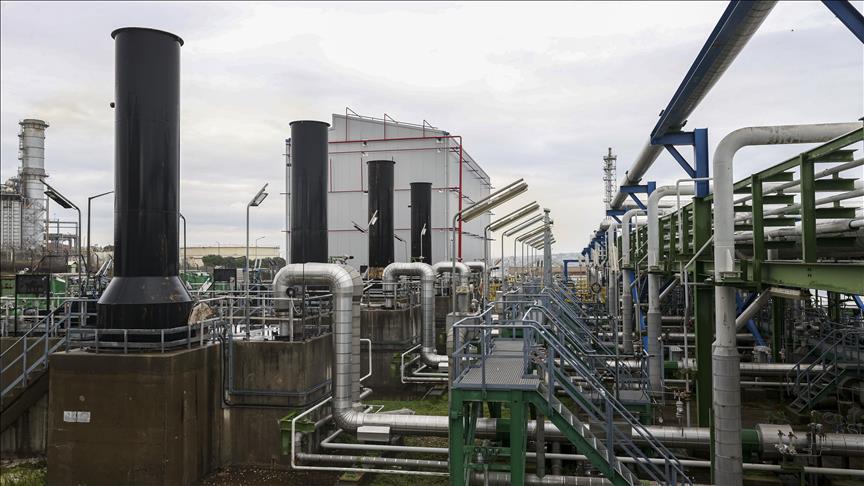Iraq is looking for long-term solutions to its energy shortages, with the country inundated with natural gas import debts to Iran due to US sanctions.
Iraq struck an oil-for-gas deal with Tehran to meet its surging summertime demand for electricity, but as the country’s economy has been paralyzed by years of unrest, the government needs to search for alternate energy sources and collaborations to resurrect its ailing energy infrastructure.
The many years of conflicts began with the eight-year war with Iran in 1980 during the era of Saddam Hussein, the ousted leader of the country, who was hanged in 2006.
Saddam’s invasion of Kuwait in 1991 was followed by UN economic embargoes that endured until 2003, when the US invaded Iraq along with the invasion by the Daesh terror group. These unremitting internal conflicts led to widespread corruption, striking a heavy blow to the country’s economy and neglecting its energy infrastructure.
The country has become more and more energy-dependent and less attractive to foreign investors despite its huge energy resources.
The country’s debts to Iran total around $12.1 billion, which it struggles to pay due to US sanctions that only allow Iran to access funds to buy non-sanctioned goods, such as food and medicine.
With its proven oil reserves of approximately 145 billion barrels, Iraq is the fifth-largest producer in the world and the second-biggest producer of the Organization of Petroleum Exporting Countries (OPEC), with a daily production of more than 4.5 million barrels.
Iraq is currently producing 20,800 megawatts of electricity but needs around 35,000 megawatts to meet its increasing demand during the summer season, when temperatures frequently exceed 50 degrees Celsius.
It produces 14,000 megawatts of power using natural gas imported from Iran, corresponding to about 40% of its electricity needs. Iraq also imports nearly 1,000 megawatts of electricity daily directly from Iran.
Iran, meanwhile, has occasionally used the problem as a political tool, restricting or shutting off its gas supplies to Iraq under the pretext of technical failures or rising domestic demand.
The oil-for-gas deal with Iran aims to alleviate its hungry energy demand by boosting its gas imports, which fell to as low as 21 million cubic meters per day at the beginning of July, to 45 million cubic meters per day, which also allows both sides to bypass US sanctions.
-Iraq eyes flared gas to catch up with rising demand
The Iraqi government also signed a $27 billion deal with French energy company Totalenergies earlier in July as part of a longer term solution to alleviate the country’s chronic energy problem and end its energy dependency.
The project aims to increase Iraq’s electricity generation using natural gas that is currently flared due to inadequate pipelines and underdeveloped infrastructure. Iraq will own 30% of the project shares, while TotalEnergies will own a 45% interest and QatarEnergy a 25% stake.
Fereydoun Barkeshli, the founder of the Vienna Energy Research Group, termed the deal ‘quite big news,’ declaring that Iraq needs electricity and ‘needs it badly’.
‘They must do all they can to overcome the electricity hazards. Most power plants were destroyed when the US bombed Iraq when Saddam tried to resist the US warnings to surrender,’ he explained.
Iraq also plans to ramp up its oil production from 4.5 million barrels per day to 13 million barrels per day to revive its energy sector.
If the proposal, which was announced earlier this month by the Iraqi parliament’s oil and gas committee, is implemented, Iraq will become the world’s top oil producer.
The majority of the natural gas that Iraq produces during oil production, termed ‘associated petroleum gas,’ is flared due to a lack of sufficient infrastructure and pipelines.
According to the World Bank’s latest Global Gas Flaring Tracker Report, nine countries burned around 139 billion cubic meters (bcm) of natural gas last year, of which Iraq was responsible for 17.9 bcm, making it the second-worst gas flaring nation after Russia.
Iraq’s annual losses from gas flaring amounted to about $12 billion last year.
-Iraq’s lackluster energy infrastructure prevents efficient use of generated electricity
Iraq generates electric power from liquid fuels, natural gas and hydroelectric resources in addition to electricity imports from Iran to meet domestic demand, according to data compiled by the US Energy Information Administration (EIA).
Yet, the country faces frequent power blackouts and controlled outages in its electricity distribution system, especially in the summer, due to its poorly designed and outdated distribution system.
It also suffers from electricity theft, which results in large distribution losses, low voltage levels, and frequent disconnections. Iraqis and Iraqi businesses rely on expensive off-grid, private, diesel-fueled generators to address these shortfalls.
Iraq also gets hydroelectric power from the Mosul dam, located on the Tigris River north of Mosul city. However, this electricity source proved insecure when it fell under the control of the Daesh terror group in August 2014 after the group invaded Mosul, but Iraqi forces soon regained control of the dam.
Iraq lacks sufficient natural gas and, at times, water to fuel its power plants. Iraq’s electricity growth plan calls for natural gas-powered turbines to power the majority of the country’s electricity.
Iraq’s oil and natural gas industry is the country’s largest industrial power consumer. Large-scale increases in oil production require corresponding increases in electric power generation.
The Iraqi government provides about $11 billion in subsidies for electricity bills. However, the majority of Iraqis do not pay for the electricity delivered, putting a very heavy burden on the nation’s already-struggling economy.
Despite attempts to implement reforms and institute bill collection, the government is unable to receive payments, especially from poor areas.

